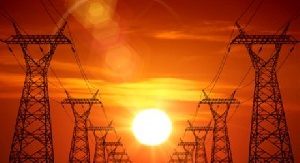The National Democratic Congress’ response to erratic power supply (dumsor), shows either the Mahama administration does not understand the problem or it is deliberately misleading Ghanaians, Dr Mahamadu Bawumia has said.
Dr Bawumia, a former deputy Bank of Ghana governor said the NDC government inherited an economy without ‘dumsor’ in 2009, but by 2012, ‘dumsor’ became the order of the day and has persisted until now.
“In response, government started a promising spree which, with hindsight, shows either they did not quite understand the problem or they were deliberately misleading Ghanaians,” Dr Bawumia said in response to the 2016 budget at a press conference Wednesday at the party’s headquarters.
He said, after promising to resign if ‘dumsor’ is not over by the end of the year (2015), Minister of Power, Dr Kwabena Donkor now says he was talking about load shedding and not ‘dumsor.’
“We are still trying to understand what he means,” he added.
He said the fact remains that four years down the road, ‘dumsor’ is still present, and the government has just announced the arrival of an emergency solution for 10 years by contracting a power barge from Turkey with a reported $100 million guarantee for fuel, at the same time as the Volta River Authority (VRA) has shut down its plants because it cannot purchase fuel.
According to him, a 225-Megawatt plant like the Karpower plant will cost some $225 million and “we will own it – with the unit cost of a megawatt plant at $1million”.
He claims under the Karpower deal, Ghanaians will pay for the power from the barge for the next 10 years whether it is used or not.
Dr Bawumia said the Africa Centre for Energy Policy (ACEP) estimates that based on the capacity charge, alone, which is 5.6cents per kWh, the barge will cost Ghana some $1 billion for 10 years.
That amount, he said, excludes the barge’s fuel requirement of 35,000 tonnes per month.
“After 10 years the barge will sail away; when we could have built a 1,000-Mmegawatt plant for ourselves,” he bemoaned.
General News of Wednesday, 2 December 2015
Source: classfmonline.com













